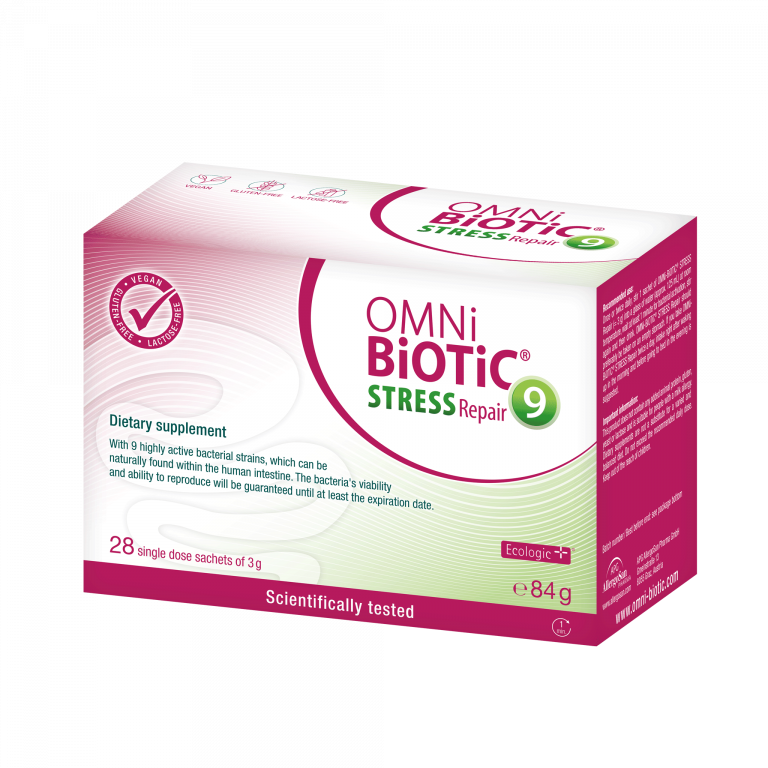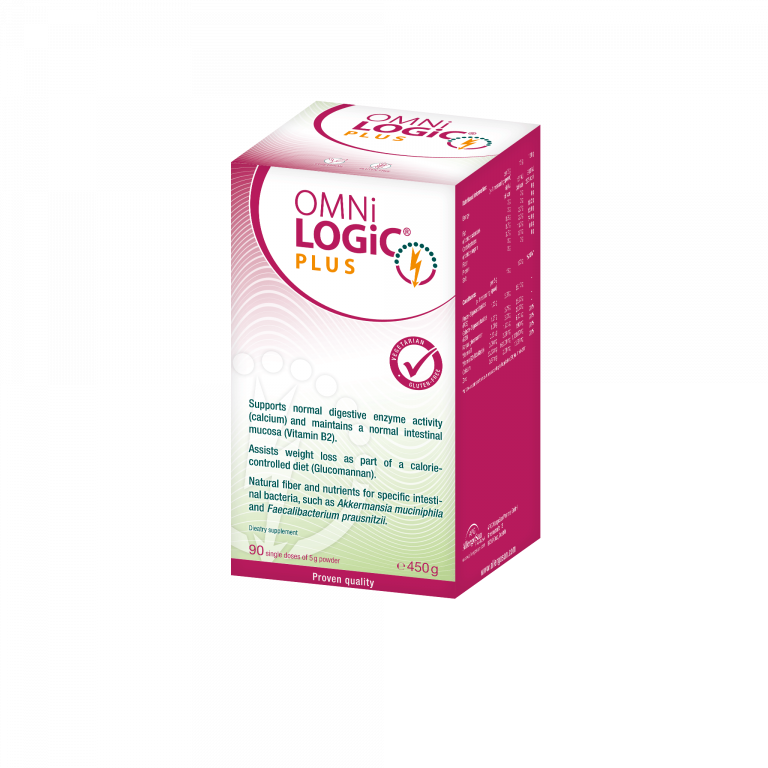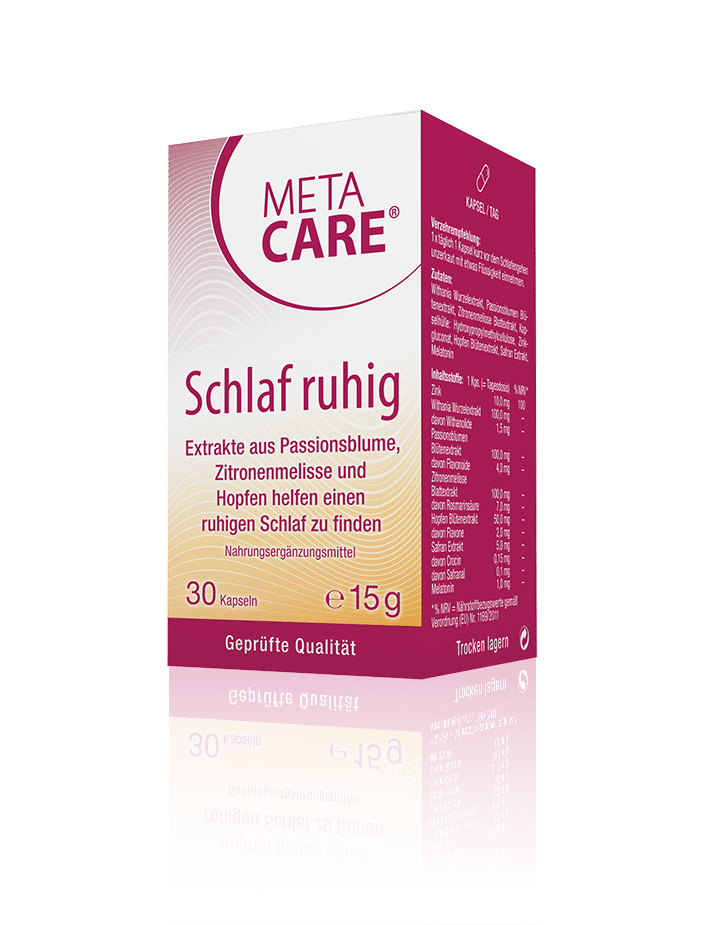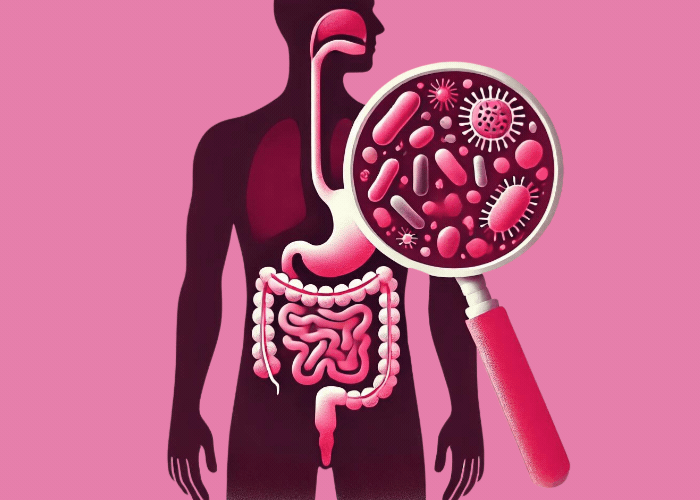Stress, Depression & Gut Health
Surely you know the feeling of being really stressed. The sinking feeling in your stomach won’t go away, restful sleep is out of the question, you feel powerless and have neither the desire nor the drive to work through your to-do list.
Even if we are capable of multitasking, challenges at work, in the family and in our private lives simply cannot be overcome without stress. We can tolerate stress well for a while – but if we don’t find some relief for a longer time, our immune system suffers, our susceptibility to infections increases, our nervousness rises, and in the worst case it ends in burn-out.
Our intestines in particular react very sensitively to stress – as a result, important intestinal bacteria die off and the intestines become permeable to toxins, pathogens and allergens. Inflammation is increased and spreads throughout the body to the brain. The production of important hormones, such as the happiness hormone serotonin and the sleep hormone melatonin, is also impaired, and this can cause sleepless nights and bad moods.

Contents

What happens to your body when you are stressed?
The brain releases neurotransmitters (messenger substances of the nerve cells) and stress hormones within milliseconds. Immediately, blood pressure rises, as do heart and respiratory rates, blood sugar and blood flow to the skin and muscles. The pupils dilate, breathing becomes faster and the digestive system is either over-activated or is shut down for the time being – our entire body is put on alert.
Permanent stress can cause lasting damage to the entire organism: The nervous and immune systems suffer, the energy balance is in the basement and the ability to concentrate and our approach to solving problems are limited.
You don’t know where your head is anymore when stress gets out of hand!
The gut-brain axis is the close connection and intensive exchange of information between the intestine and the brain, in both directions. A central element of the communication between the intestine and the brain is the nervous system. There are about 100 million nerve cells in the digestive tract - about four to five times as many as in the spinal cord - which is why the intestine is also called our second memory. This so-called enteric nervous system, our "abdominal brain", in cooperation with the "head brain" regulates, among other things, intestinal motility (i.e. the movement of the intestinal muscles), the blood flow in the digestive tract and also the immunological function of the intestine. Hormones, i.e. nerve messengers, also play an important role in the gut-brain axis: more than 20 hormones are produced in the gut, including the majority of serotonin - the messenger responsible for feelings of happiness and good mood. Serotonin also forms the precursor for the production of the sleep hormone melatonin, which ensures a restful night's sleep.
Losing sleep due to stress?
Sleeping is an active process during which changes take place in the brain and the entire body that serves the purpose of recovery. The impressions of the day are processed during sleep. An adult needs about 7-9 hours of sleep per day. Sleep is used for regeneration.
The immune system is strengthened and energy levels are balanced. The hormone melatonin is released in the brain, which prepares the various bodily functions for sleep. The body is put to rest as the body temperature drops a little, breathing and pulse slow down and blood pressure also drops. The memory of falling asleep is absent as the brain releases chemicals within fractions of a second that shut down consciousness.
However, stress can lead to sleep problems, for example, when the carousel of thoughts spins relentlessly on after a busy day. As a result, you are more tired and less concentrated and your nerves are also affected. A vicious circle begins in which the lack of sleep intensifies and the nerves continue to suffer.


Stress-induced Leaky Gut
Our internal organs are not spared from stress either: for 85% of all people, stress has a negative impact on the digestive organs – constipation and bloating reduce the quality of life. The combination of stress, high-fat fast food, cigarettes and a glass or two of alcohol after a long day often results in heartburn and stomach pain stemming from gastritis. To get these painful symptoms under control, a biological combination of oats and papaya is recommended, which soothes the stomach and does not put additional strain on the body.
A stress-induced reduction of the intestinal flora also damages the intestinal mucosa: Our intestinal bacteria produce important short-chain fatty acids (e.g. butyrate), which serve as central energy suppliers for the intestinal mucosa.
However, if too few intestinal bacteria are present, our intestinal mucosa receives too little energy, the tight junctions between the cells of the intestinal mucosa dissolve and the intestine becomes “leaky gut“. Harmful substances can penetrate the body almost unhindered and cause damage – which is why susceptibility to infections increases so rapidly when you are stressed!
In order to get the bacterial balance back on track quickly, it is important to take high doses of probiotics and at the same time pay attention to the fibre balance. Often your diet also suffers when you are stressed, and instead of whole grains and vegetables, snacks rich in fat and sugar are devoured, which contain hardly any fibre. However, dietary fibre forms the nutritional and vital basis for a large part of our important intestinal bacteria, and a deficiency consequently leads to a further reduction of the already depleted intestinal bacteria.
Digestion & Stress
Our intestinal bacteria suffer particularly when we are stressed - under this strain, the natural composition of our "helpers" in the intestine can quickly change. As a result, the production of important hormones in the gut (e.g. the active precursor for our happiness hormone serotonin and the sleep hormone melatonin) no longer functions properly, and this not only affects mood and sleep but also the communication between the gut and the brain. Gastrointestinal complaints such as constipation, diarrhoea, irritable bowel syndrome, heartburn or gastritis are also closely related to stress.
Conversely, an unbalanced gut microbiome and inflammation in the gut also affect the brain (so-called gut-brain axis). Therefore, especially in stressful phases, it is important to support the gut with special probiotics that have been developed for times of high stress. This supports the natural intestinal flora in fighting inflammation and producing hormones, and your intestines can therefore cope better with your stress.
Stress, Mental Health & The Microbiome
Everyone is allowed to have mood swings, it is perfectly normal to be in a better or worse mood one day – imagine what it would be like if you were always in the same mood. Changes in mood are measured in practice using so-called “mood charts”, i.e. with the help of mood diaries. Depression affects your mood but also may include losing joy or interest in hobbies and other things that you used to enjoy (anhedonia), or lacking energy and drive.
If at least two of these main symptoms are present for more than 14 days, it is easy to suspect depression. However, there are numerous secondary symptoms, of which at least two must be present in order to actually diagnose depression.
One of these symptoms, which can have a massive impact on the quality of life, is a lack of concentration. Patients have the feeling that they can no longer follow a conversation or read a newspaper. Regenerating this ability to concentrate after depression is also a very important factor in enabling a quick return to work.

3 Step Gut Health Concept for Stress
No matter how good you are at multitasking, there are times when we all need a little extra support to make it through stressful phases. That is why our experts recommend the following 3-step gut health concept to help you get back on track with the help of your intestines.

Step 1: OMNi-BiOTiC® STRESS Repair
Modern anti-stress therapy starts directly in the gut: OMNi-BiOTiC® STRESS Repair* is specially designed to effectively regulate inflammation in the gut caused by stress. “De-stress” your intestines with OMNi-BiOTiC® STRESS Repair – and start the day relaxed and in good spirits!
Simply stir a sachet of OMNi-BiOTiC® STRESS Repair into approx. 1/8 l of water every evening, drink after 1 minute activation time. In particularly stressful phases, use OMNi-BiOTiC® STRESS Repair in the morning and evening.

Step 2: OMNi-LOGiC® PLUS
OMNi-LOGiC® PLUS contains a special combination of fructo-oligosaccharides (FOS) and galacto-oligosaccharides (GOS), which serve as food for Akkermansia muciniphila and Faecalibacterium prausnitzii.
In addition, vitamin B2 maintains normal mucosal function and calcium plays an important role in the normal function of digestive enzymes. Simply dissolve 1 measuring spoonful of OMNi-LOGiC® PLUS in a glass of water 3 times a day and drink immediately – this way you create a liveable environment for important bacteria in your intestine.

Step 3: META-CARE® Sleep Well
META-CARE® Sleep Well contains a unique combination of 5 traditionally proven plant substances (passion flower, lemon balm, hops, withania root, also known as ashwagandha, and saffron) and makes an important contribution to shortening the time it takes to fall asleep with the melatonin* contained.
Zinc contributes to normal cognitive function as well as to the protection of cells against oxidative stress. For a peaceful sleep, simply take 1 capsule of META-CARE® Sleep Well 1 x daily shortly before going to bed – so you can start the new day well rested and refreshed.
Any questions? Contact us!
Our highly-qualified consultant team is made up of doctors, pharmacists, biologists, nutritionists and microbiologists. Contact us to get advice regarding our products, your intestines, as well as your microscopic inhabitants.

Help & Advice
Institut AllergoSan
UK
OMNi-BiOTiC® − Blog
Stay informed!
Read more interesting articles about our gut and get tips for your gut health!
OMNi-BiOTiC® − Blog
Stay informed!
Read more interesting articles about our gut and get tips for your gut health!
OMNi-BiOTiC®
Our intestinal bacteria perform at their best every day. Unhealthy diets, stress or medication can change our intestinal flora. The targeted supply of specially selected strains of bacteria – called probiotics – supports our intestines in every phase of life: while taking antibiotics, in particularly demanding times or as a daily go-to for the whole family.
OMNi-LOGiC®
The intestine is the health centre of our body: billions of intestinal bacteria work every day to ensure that digestion and the body’s defences function optimally. In order for these useful helpers to feel at home and fulfil all their important tasks, they need specific dietary fibres as a food source, such as those contained in prebiotics.
META-CARE®
Many individuals struggle to obtain sufficient vitamins, minerals, and trace elements through their diet. Additionally, particularly during periods of elevated stress and heightened mental or physical strain, the body’s demand for nutrients intensifies. The body’s functions can be aided by taking high-quality micronutrients and plant extracts, enhancing your overall health and well-being.
OMNi-BiOTiC® − for a good gut feeling every day
The secret of OMNi-BiOTiC®’s success lies in its innovative formulation and high-quality standards. These are top priorities in developing probiotics and ensuring tangible benefits for users.

















